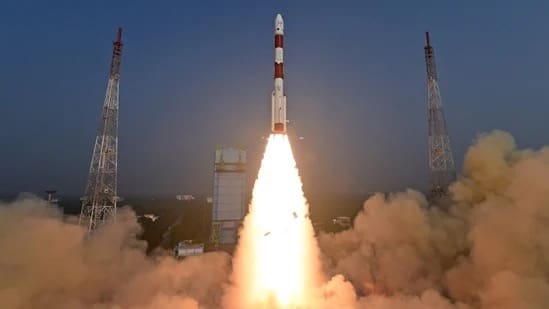
On New Year’s Day, India embarked on a mission to unravel one of the universe’s oldest mysteries – black holes. At 9:10 am, the Indian Space Research Organisation (ISRO) initiated the launch of XPoSAT, the X-ray Polarimeter Satellite, from Sriharikota.
At 9.32 am, ISRO announced that the lift-off of the Polar Satellite Launch Vehicle (PSLV) was normal and XPoSAT was launched successfully.
“PSLV-C58 vehicle placed the satellite precisely into the intended orbit of 650 km with 6-degree inclination. The POEM-3 is being scripted,” ISRO posted in X.
Minutes after, ISRO chief S Somanath announced the successful launch.
POEM refers to PSLV Orbital Experimental Module.
It is the first dedicated scientific satellite from the ISRO to carry out research in space-based polarisation measurements of X-ray emission from celestial sources. Besides the ISRO, the US-based National Aeronautics Space Agency (NASA) conducted a similar study — the Imaging X-Ray Polarimetry Explorer mission in December 2021 on the remnants of supernova explosions, the particle streams emitted by black holes and other cosmic events.
The objective of the PSLV-C58 mission includes measuring polarisation of X-rays in the energy band 8-30 keV emanating from about 50 potential cosmic sources, to carry out long-term spectral and temporal studies of cosmic X-ray sources.
The X-Ray polarisation serves as a crucial diagnostic tool for examining the radiation mechanism and geometry of celestial sources. The primary payload of XPoSat is POLIX (Polarimeter Instrument in X-Rays) which is designed to measure polarimetry parameters by Raman Research Institute and XSPECT (X-ray Spectroscopy and Timing) built by the U R Rao Satellite Centre, Bengaluru.



